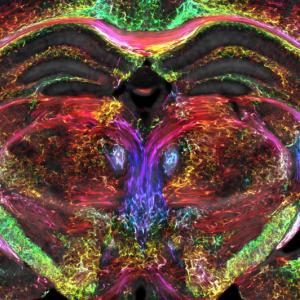Blood May Hold the Key to Cheating Father Time
Products have flooded the marketplace that purport to make a person appear younger.
Dean Klotman's Friday Message & Conversation with Julius Wilder, MD, PhD
Dean Klotman welcomes Julius Wilder, MD, PhD, Assistant Professor of Medicine, and Assistant Professor of Sociology, to discuss the rising rate of colon cancer in young adults, and what Duke is doing to help turn this trend around.
Construction Workers at Increased Risk for Life-Threatening Lung Disease, Study Finds
A study led by a School of Medicine researcher shows that construction workers are at increased risk for restrictive lung disease and points to the need for more preventive measures.
New Cause Identified for Metabolic Disease that Strikes Native Americans
Duke Health researchers have identified the cause of an inherited metabolic disease common among people with Lumbee and other Native American heritage, overturning decades of settled science and pointing to new, more effective therapies.
New DST Scholar Named to American Academy of Arts & Sciences
Amy S. Gladfelter, PhD, joined the School of Medicine faculty on April 13 and will be a full professor in the Department of Cell Biology after July 1.
Calakos Receives 2023 ASCI Korsmeyer Award
The American Society for Clinical Investigation (ASCI) has awarded Nicole Calakos, MD, PhD, its 2023 Stanley J. Korsmeyer Award. The Korsmeyer Award recognizes outstanding achievements of ASCI members in advancing knowledge and mentoring future generations of life science researchers.
Clare Smith Wins Mary Lyon Award
Clare Smith, PhD, assistant professor of molecular genetics and microbiology is the winner of the 2024 Mary Lyon Award and will present an oral presentation at the International Mammalian Genome Conference in Washington, D.C., in 2024.
Brain Images Just Got 64 Million Times Sharper
Coinciding with the 50th anniversary of the first MRI, the researchers generated scans of a mouse brain that are dramatically crisper than a typical clinical MRI for humans.
Chaos, Confusion From Judge’s Mifepristone Decision, Experts Say
Medical, legal experts brief media on affects of ruling
Duke Receives Grant Aimed at Improving Health of Durham Residents
Duke Health, in partnership with the Durham County Department of Public Health, has been awarded a grant totaling $750,000 from The Duke Endowment to support a coalition aimed at improving the health and well-being of Durham residents.









